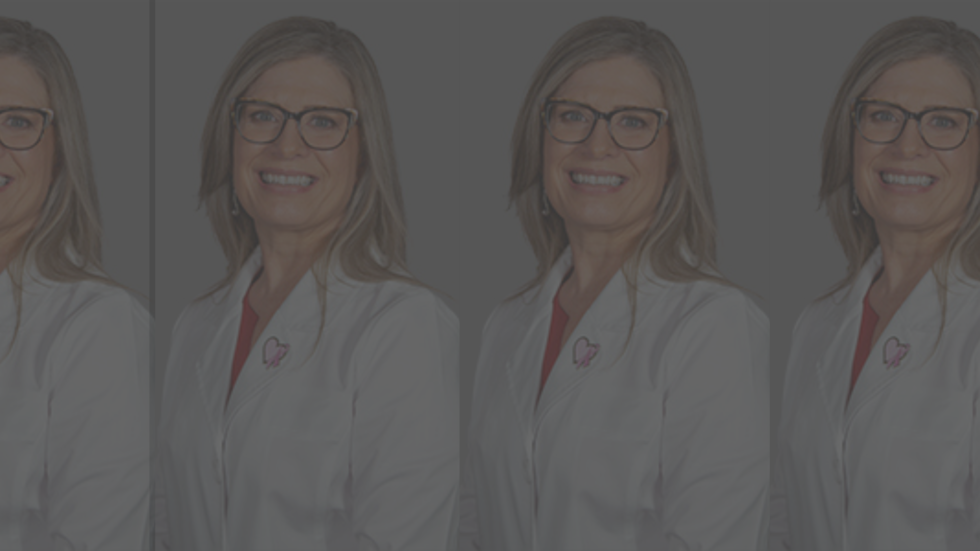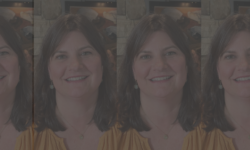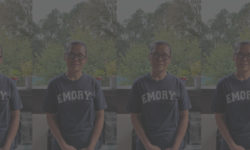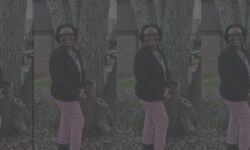
The year was 1965. It had been 26 years since the Spanish Civil War had ended, and Spain had been overtaken by a Nationalist dictatorship led by Francisco Franco, who inflicted famine, poverty, and conflict upon his people.
In Francoist Spain, the whole country was “one wide prison,” according to Spanish historian Ramón Arnabat, and thousands of Spaniards fled to countries across the globe. Among the thousands were 31-year-old David and 23-year-old Maria Yaguez, hoping to find safety by immigrating to the U.S.
Two years later, once arriving in New Jersey, they would welcome their firstborn daughter, Nurse Practitioner and Oncology Specialist Yolanda Bone.
The Path to Healthcare
Bone grew up as a first-generation American to Spanish immigrants. Her family was low-income, and she navigated high school on her own through Pell Grants and other scholarships, since her parents had limited understanding about pursuing such financial support.
One day during her junior year of high school, Bone had gone to bed and dreamed of becoming a nurse.
“I’ve always been someone that cared about others,” Bone said. “I had a propensity for nurturing others, so I know that’s one of my gifts … but I didn’t know what I wanted to pursue. So I really feel that was God telling me what my plan was.”
When Bone raised this to her guidance counselor, her counselor told her that she should be pursuing medicine, especially considering how good her grades were. However, Bone insisted that she knew what she was supposed to do.
“In nursing, we’re very blessed that we can be involved in so many facets of caring for the individual,” Bone added. “You can care for an individual, you can care for families — there’s so many things that a nurse can do.”
Bone began working her first job when she was 16 to save up money to attend Raritan Valley Community College, a two-year community college, and graduated with an associate’s degree in Registered Nursing.
After graduating, Bone moved to North Carolina and became involved with research at the University of North Carolina School of Nursing. Using her ability to speak Spanish, she collected data for a study on post-childbirth depression in rural, Hispanic women.
Bone also worked in psychiatric nursing as a pediatric ICU nurse at Duke University Hospital. She also practiced in the University of North Carolina at Chapel Hill Hospital operating room center and worked in various teaching facilities at Wake Medical Center.
After 14 years, Bone moved to Tampa, Florida, and began to pursue higher education in nursing, participating in a bridge program at St. Petersburg College in St. Petersburg, Florida. This bridge program allowed her to attain her Bachelor’s Degree in Nursing Science in three years rather than the traditional six.
Becoming a Nurse Practitioner
In Florida, Bone met a nurse practitioner named George Smith, who became her colleague and a friend, and then mentor.
“He had asked me when [I was] going to go back to nurse practitioner school,” Bone said.
After shadowing Smith for a period of time, she decided to return to school and obtained her Master’s Degree in Nursing from South University in Savannah, Georgia. After a year, she also pursued her Doctorate in Nursing Practice from Brandman University in Irvine, California, focusing her dissertation on rural women managing depression in a primary care clinic.
“Really what I learned was [that] the only person that’s going to stop me is me,” Bone added. “And I think that’s invaluable. Because that’s growth. We often think about growth only from a professional standpoint, but probably the most important growth is personal growth.”
Throughout the span of career, Bone reflected on the fact that she has always changed her working environments and experimented with her specialties: this has included working in robotic sales for surgical equipment.
“I like change, I like challenges, and I’ve done all kinds of things in nursing,” Bone said. “Probably one of the best pieces of advice a nursing instructor gave me was to change your specialty every five years.”
Bone’s Passion For Rural Medicine
Eventually, Bone began working for a rural family practice in Hope, Arkansas. She identified cancer in patients and referred them to an oncologist, working with underserved communities similar to where she had been raised.
After a year in Arkansas, her clinic unfortunately shut down, which led her to her current position at Christus St. Michael Hospital in Texarkana, Texas.
“I didn’t really have any … oncology experience, but I trusted what the Lord told me,” Bone recalled. “I applied for that job and I got that job. And here I am, eight years later. I am not only a board-certified family nurse practitioner, but a certified oncology nurse practitioner.”
At Christus St. Michael Hospital, Bone works with patients in the infusion center, which entails caring for patients who are undergoing chemotherapy treatment. She evaluates to see if they are well enough, from a clinical and laboratory perspective, to receive their treatment for the day.
Furthermore, she educates patients on various topics, including their chemotherapy regimen, what the stage of their cancer entails, and how the oral chemotherapeutic drug works in their body.
“I’m an educator, I’m a clinician, I’m an advocate,” Bone said. “I’m all those things for the patient and [their] family.”
Bone noted that her primary focus has been on taking care of the underserved. Due to the hospital’s centralized location, in addition to the Texarkana metropolitan area of Texas and Arkansas, they also see patients from Oklahoma and Louisiana.
“We are essential, where we are located,” Bone added. “And we do serve a larger population outside of the small town, because they don’t have access to anything else.”
Additionally, a majority of Bone’s patients live on a fixed income and receive social security or disability checks. Most are economically disadvantaged and lack the transportation necessary to travel to the hospital.
Though Bone has worked at large hospitals with exposure to cutting edge research and technology, such as those at Duke and University of North Carolina at Chapel Hill, she ultimately prefers taking care of underserved, rural communities.
“I just know where my heart is, and it’s taking care of the poor,” Bone said. “I guess it’s because of where I came from, knowing that I come from a poor family. I know what it’s like to be an immigrant kid, and that’s a lot of the people I serve. And I just want to give back.”







